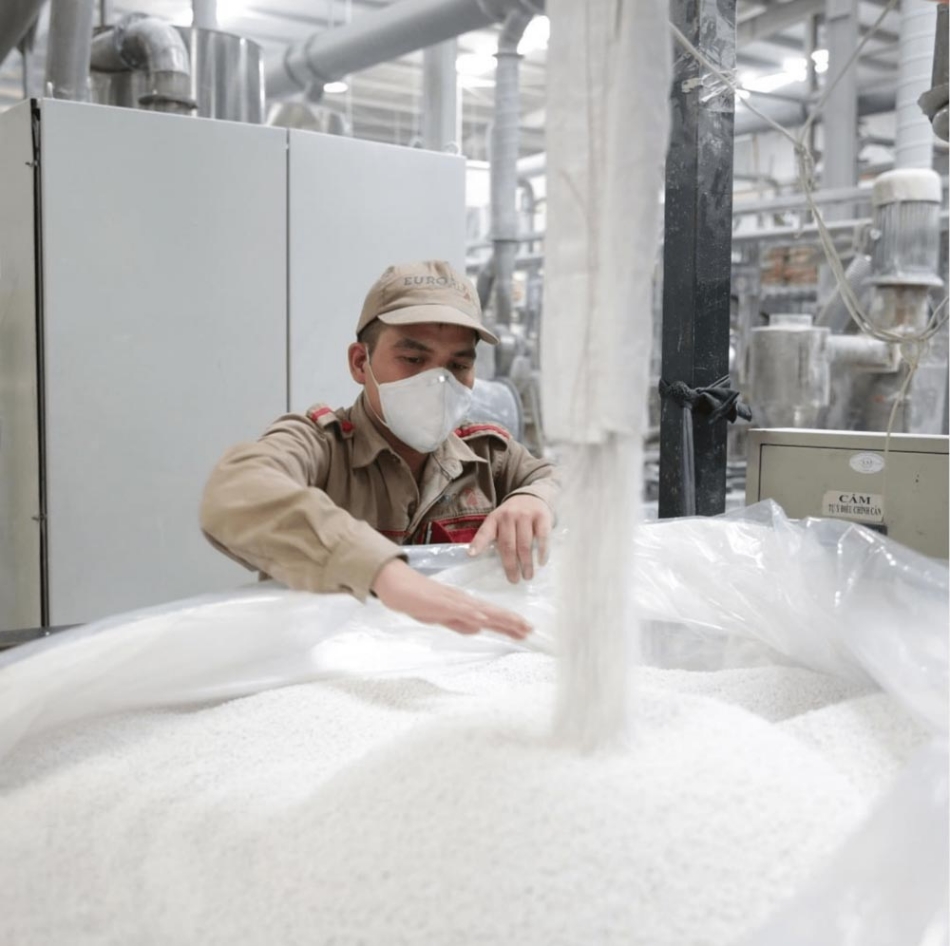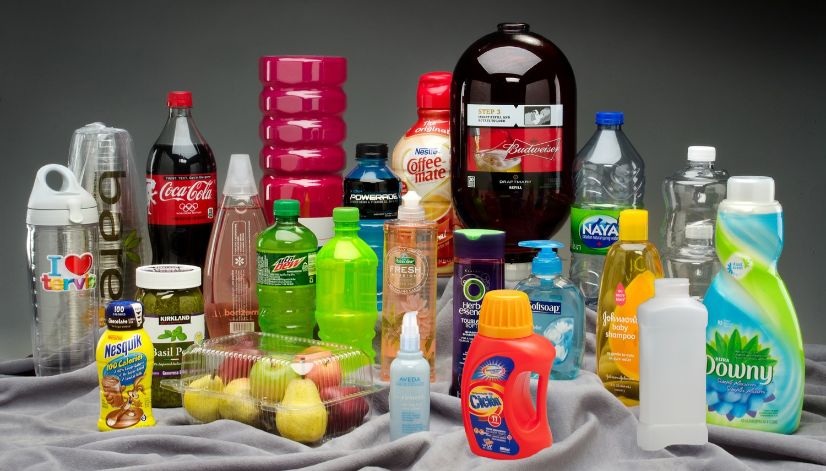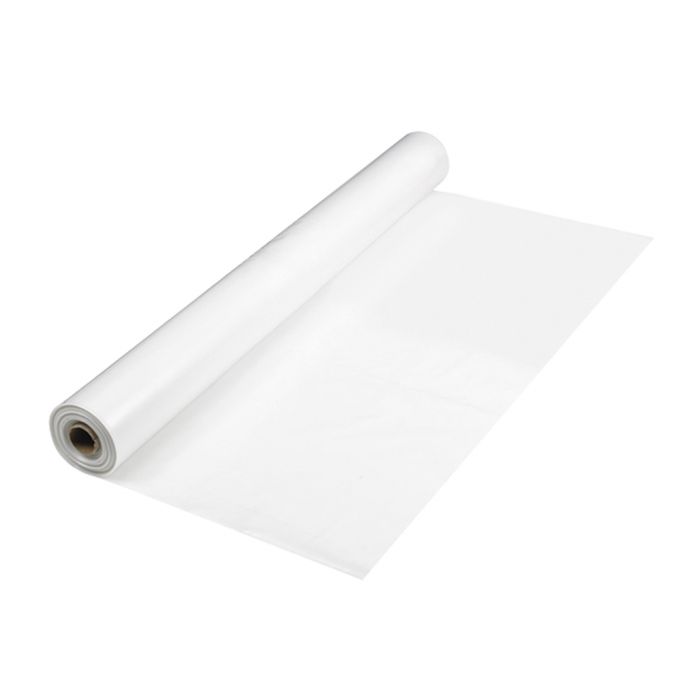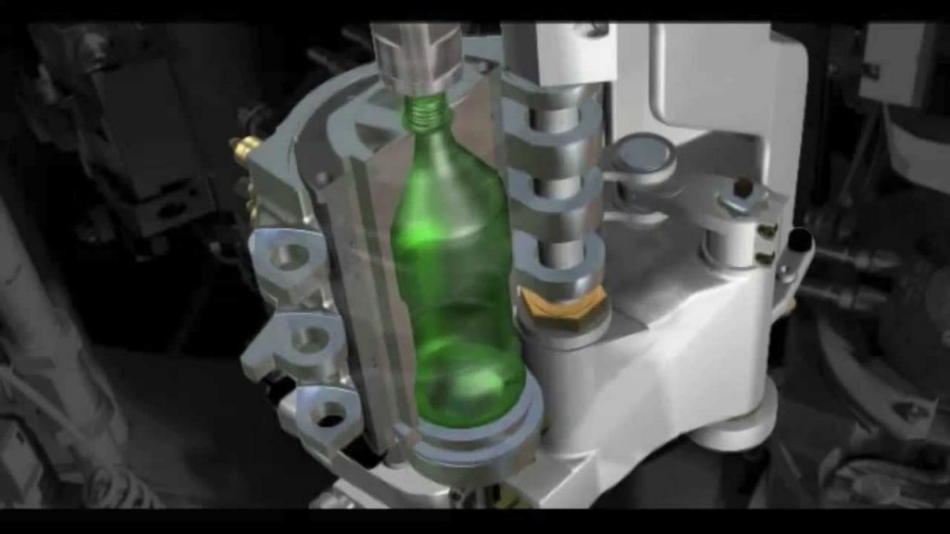In plastic and masterbatch manufacturing, calcium carbonate (also called limestone powder) is frequently used as a filler. This filler helps producers reduce production costs during masterbatch manufacturing and sometimes also helps them improve the product's performance. Fillers in plastics are usually insoluble minerals, which are added in order to increase the volume of polymers. They play many roles in polymer systems and can be broadly classified as reinforced or non-reinforced fillers.

1. The classification in using fillers in plastic and masterbatch
manufacturing
Expensive fillers such as fiberglass, fiber, and carbon nanotubes are generally not used in the polymer manufacturing industry. Mineral fillers such as talc powder are mainly added to increase hardness and improve the mechanical properties of polymers. Although talc is cheaper than polymers, adding talc may not always help reduce the cost of the polymer.
Meanwhile, among the fillers, calcium carbonate is one of the most widely used fillers, especially in plastics, rubber, and masterbatch manufacturing. The main role of calcium carbonate is to reduce production costs and consequently, the final products’ prices but is also sometimes used to improve the performance of the outputs (such as in electrical tools, when conducting smooth casting, finishing fuzzy surfaces, etc.)
2. Overdose of fillers may affect the masterbatch manufacturing
When using fillers at a high concentration (within products in which the main purpose of using calcium carbonate is to reduce production costs), the key physical properties of the product (such as tensile strength, impact resistance, etc.) will be adversely affected. Therefore, when using calcium carbonate as the filler in masterbatch manufacturing, producers must balance the purpose of reducing costs and quality requirements for the relevant application in order to establish a proper formula. This is especially true for PVC applications, where calcium carbonate is often used to its maximum.
Below is the list of products considered as applications of calcium carbonate filler in plastic production.
3. Application of masterbatch manufacturing
Using calcium carbonate filler in
masterbatch manufacturing increases the
product’s durability, helps the outputs achieve better dispersion and optimal glossiness.
Besides the efficiency of production process is also well improved. Therefore,
calcium carbonate is an indispensable material in the plastic production. CaCO3 has a great influence on the properties of
the product such as durability in the natural environment, duration while products
are used, so choosing the right type of calcium carbonate as raw material is
very important.
3.1. Plastic Packaging
Calcium carbonate is also commonly
used in PE or PP bags, woven PP bags production, in which it serves the purpose
of resistance the effects of fractionation or the effects of fiber bonding.
Calcium carbonate is suitable for the polyolefin masterbatch manufacturing such as:
+ Reduce PP plastic segmentation,
+ Increase the hardness,
+ Reduce the amount of titanium
oxide and reduce the amount of materials.

3.2. Casting products and its application from masterbatch manufacturing
Calcium carbonate is widely
applied in the masterbatch manufacturing
and its applications in casting products such as the manufacture of thin
films to the production of thick plastic sheets with the increased chemical
properties and improved production productivity. Calcium carbonate reduces
production costs, increases hardness, and strengthens the tensile strength of
the final products. Film production technology is applied in the production of
extensive plastic products, from drainage plastic films to molded film as well
as heat resistant sheets.
3.3. Plastic vapor film
Using calcium carbonate in the
production of plastic vapor film is an advanced solution due to small pores
with special advantages related to hygiene. Calcium carbonate is the active
substance in this case, providing the membrane with special properties allows
evaporation through tiny pore systems.

3.4. Extruded cast film
Calcium carbonate helps reduce
production costs and improves the quality of cast films. Calcium carbonate is widely
used in LDPE, LLDPE, HDPE and PP masterbatch
manufacturing.
3.5. Blow molding
Calcium carbonate used in blow
molding to produce bottles or products used as containers will provide them
with various advantages. By selecting the plastic materials suitable for
calcium carbonate, the manufacturer will create a wide range of product or
container that has a balanced weight and with the maximum reduced price.

3.6. Injection molding
Meanwhile, applying calcium
carbonate-containing masterbatch
manufacturing in injection molding is a proven solution to improve product
properties and manufacturing process. It is commonly used in the manufacture of
spare parts, equipment, household products and in the auto industry.